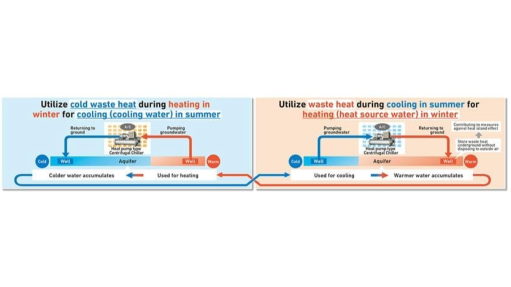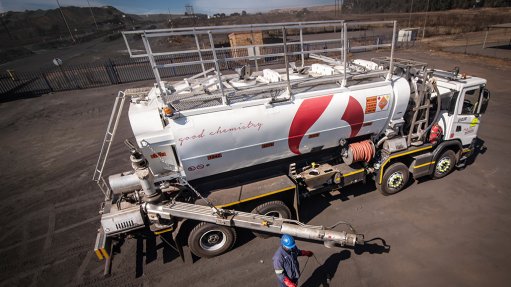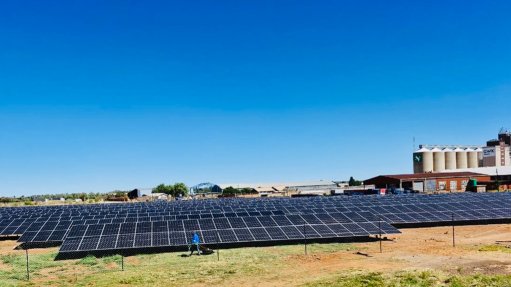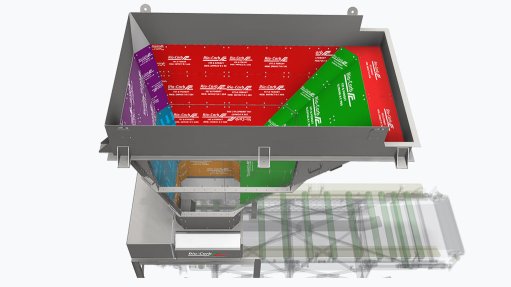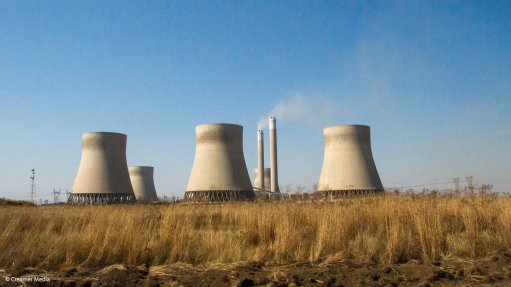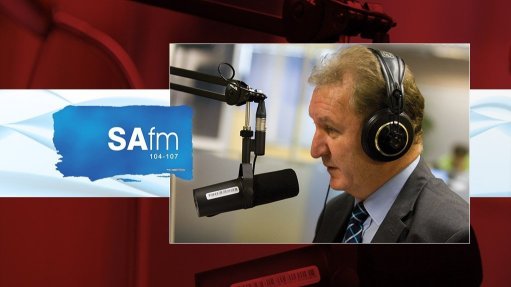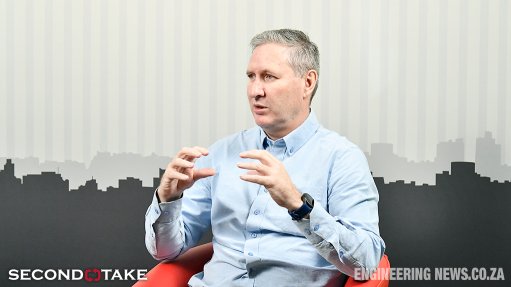Lotus reveals accelerated restart plan for Kayelekera uranium project
ASX- and OTCQX-listed Lotus Resources has announced an accelerated restart plan for its Kayelekera project, in Malawi, following the completion of front-end engineering design (FEED).
Lotus said it was now moving into detailed engineering and on-site works for Kayelekera’s low-capital-intensity but accelerated restart to ensure the company achieves its strategic objective of becoming a globally significant uranium producer by the third quarter of next year.
In a statement issued by the company on October 8, Lotus said the time to first uranium production had been reduced from about 15 months to between eight and ten months by phasing in the completion of nonessential site infrastructure, such as grid power and an acid plant rebuild, beyond first production.
The accelerated restart plan reduces initial restart capital through a phased approach by focusing on capital items essential to the restart, with the remaining capital expenditure (capex) continuing off the critical path to optimise operations and cost structure.
The company said that, as a result, the initial restart capex to first uranium production had been reduced to $50-million from $88-million, with an initial restart capital intensity of $21/lb.
Lotus said the accelerated restart plan promised positive operational and financial outcomes, assuming a long-term uranium price of $90/lb.
Under the plan, the life-of-mine (LoM) production target is 19.3-million pounds of triuranium octoxide over a ten-year mine life, with a steady-state C1 cash cost of $34.5/lb and an all-in sustaining cost of $44.80/lb.
Moreover, the plan promises a pre-tax and post-tax net present value of $439-million and $301-million, respectively, with a pre-tax and post-tax internal rate of return of 80% and 66%, respectively.
The initial capital payback should be achieved within two years of production restart, with LoM pre-tax and post-tax free cash flow generation of $698-million and $486-million, respectively.
Kayelekera’s production restart is derisked by 11-million pounds of historical uranium production, with $200-million capital invested into the plant and operations and four-million pounds of existing stockpiles supporting the ramp-up of the operation.
The Lotus board has already approved long lead item orders, the mobilisation of mobile equipment and construction crews, and early works.
The company said its A$34-million in cash as at June 30 had allowed it to proceed with the Kayelekera restart.
In parallel, Lotus is continuing to assess the optimal funding mix including debt, prepayment sources and strategic and cornerstone funding sources, and expects restart capital, post-production capital and working capital to come from a mix of these sources.
“Following the signing of the mine development agreement and the completion of the FEED programme, Lotus is well positioned to take advantage of the continuing strength in the term uranium price and the strong uranium demand outlook,” Lotus CEO Greg Bittar said.
He added that the thorough FEED processes had provided the foundation for the company to optimise and accelerate its restart plans for Kayelekera, taking advantage of the existing plant and infrastructure.
“By sequencing the capital spend and targeting the critical restart items we reduce the amount of initial restart capital, which allows us to turn the plant on much earlier than previously contemplated.
“This not only provides us with increased funding flexibility but critically allows us to be a producer next year and take advantage of the strong customer demand we are seeing by moving into production as soon as possible,” Bittar said.
He added that, by decoupling the restart timetable from the long lead items which are not on the operational critical path, the company was able to start the plant well ahead of the original definitive feasibility study schedule of 15 months.
“Those capital items remain in the plan and will be brought on as soon as possible in order to optimise the cost structure. However, we don’t need to wait for those, or have the timetable to restart dependent on those, items.
“The plan was always to have full backup diesel power generation, as the site was originally operated by, and we can use this power while the grid connection is completed. Trucked-in sulphuric acid can be used until the acid plant is commissioned,” Bittar said.
Comments
Press Office
Announcements
What's On
Subscribe to improve your user experience...
Option 1 (equivalent of R125 a month):
Receive a weekly copy of Creamer Media's Engineering News & Mining Weekly magazine
(print copy for those in South Africa and e-magazine for those outside of South Africa)
Receive daily email newsletters
Access to full search results
Access archive of magazine back copies
Access to Projects in Progress
Access to ONE Research Report of your choice in PDF format
Option 2 (equivalent of R375 a month):
All benefits from Option 1
PLUS
Access to Creamer Media's Research Channel Africa for ALL Research Reports, in PDF format, on various industrial and mining sectors
including Electricity; Water; Energy Transition; Hydrogen; Roads, Rail and Ports; Coal; Gold; Platinum; Battery Metals; etc.
Already a subscriber?
Forgotten your password?
Receive weekly copy of Creamer Media's Engineering News & Mining Weekly magazine (print copy for those in South Africa and e-magazine for those outside of South Africa)
➕
Recieve daily email newsletters
➕
Access to full search results
➕
Access archive of magazine back copies
➕
Access to Projects in Progress
➕
Access to ONE Research Report of your choice in PDF format
RESEARCH CHANNEL AFRICA
R4500 (equivalent of R375 a month)
SUBSCRIBEAll benefits from Option 1
➕
Access to Creamer Media's Research Channel Africa for ALL Research Reports on various industrial and mining sectors, in PDF format, including on:
Electricity
➕
Water
➕
Energy Transition
➕
Hydrogen
➕
Roads, Rail and Ports
➕
Coal
➕
Gold
➕
Platinum
➕
Battery Metals
➕
etc.
Receive all benefits from Option 1 or Option 2 delivered to numerous people at your company
➕
Multiple User names and Passwords for simultaneous log-ins
➕
Intranet integration access to all in your organisation










